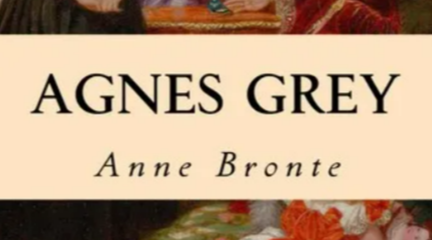Chapter XIV — The Rector
byChapter XIV – The Rector opens with a calm domestic setting that quietly unfolds into a day shaped by subtle conflict and understated emotional complexity. The morning feels routine, yet each character’s choice of activity reveals much about their personality and priorities. Matilda, ever restless, turns to riding and mischief. Rosalie, armed with a novel, strolls with an air of detached elegance. Agnes, left alone, turns to sketching—a quiet pursuit that allows space for thought. In her solitude, she reflects on the state of Snap, the terrier often mistreated and ignored. His plight, marked by loyalty and neglect, echoes her own.
When Mrs. Murray interrupts, her words carry both concern and a kind of performative care. She worries about Rosalie’s solitary walks, suggesting propriety might be compromised. Agnes, inwardly aware of the true reasons behind these outings, is tasked with following her. Though given as a duty, this errand aligns with her own unease over Rosalie’s growing interest in Mr. Hatfield. The rector’s interactions are anything but casual; Rosalie’s flirtation is calculated, and Hatfield, despite his religious stature, does not conceal his pride in receiving it. Agnes, forced into the role of chaperone and witness, suppresses her discomfort. Her position demands obedience, not opinion.
The walk reveals more than scenery. Rosalie’s flirtation with Mr. Hatfield intensifies, presented with practiced charm and coy words. Hatfield responds with equal vanity, clearly flattered by her attention. The dynamic between them is theatrical, a performance shaped by ego and social ambition. Agnes watches, feeling out of place. She is aware that what unfolds before her is not about affection but about validation. Rosalie’s beauty and status allow her to toy with emotions, while Agnes, invisible in her simplicity, must stand quietly by.
Later, back at the house, Agnes turns again to her quiet routines. The difference in how she and Rosalie engage with the world is striking. One pursues admiration; the other, meaning. Agnes’s internal reflections provide a grounding voice amid the showmanship. Her thoughts return to Snap—still neglected, still faithful. This reflection serves not only as a metaphor but also as a reminder of her own place in the household. Loyalty, to both duty and feeling, goes unnoticed but not unrewarded in the long run.
Agnes’s role as observer becomes even more pronounced. She is constantly surrounded by interactions fueled by self-interest, where appearances matter more than truth. Yet she refuses to conform to these expectations. Her quiet resistance is not born of bitterness, but of conviction. Brontë uses her to critique the hypocrisy of a society that rewards manipulation over sincerity. Even the rector, a symbol of spiritual guidance, appears more concerned with vanity than virtue. This irony is not lost on Agnes. Her trust in kindness and honesty remains unshaken, even as those values are dismissed around her.
The chapter hints at the emotional cost of such social games. Rosalie may seem in control, but her need for attention reveals insecurity. Mr. Hatfield, despite his religious office, shows more pride than pastoral care. Meanwhile, Agnes experiences a growing weariness. Her world, governed by appearances, offers little space for emotional truth. Her silence is often interpreted as weakness, but it is her strength. Through quiet endurance, she maintains her sense of self. That integrity, though overlooked, defines her journey.
As the day concludes, Agnes finds no dramatic resolution—only a deeper awareness of the roles each person plays. Rosalie continues her charade; Hatfield enjoys his fleeting triumph. But Agnes reflects with honesty. In her modesty and solitude, she finds clarity. The household’s grandeur feels hollow when measured against her quiet search for meaning. And that search, though unnoticed, is what sets her apart. She does not seek to impress, only to understand.
This chapter stands as a thoughtful exploration of social structures and personal identity. Brontë allows the reader to see beyond the surface, to question the value of charm without sincerity. Through Agnes, the novel critiques not just individuals but the culture that shapes them. Her insights expose the gap between social success and personal fulfillment. In a world where much is said but little felt, Agnes’s silent wisdom becomes a quiet act of defiance. It is through her lens that we are reminded that depth, not display, is what gives life meaning.

